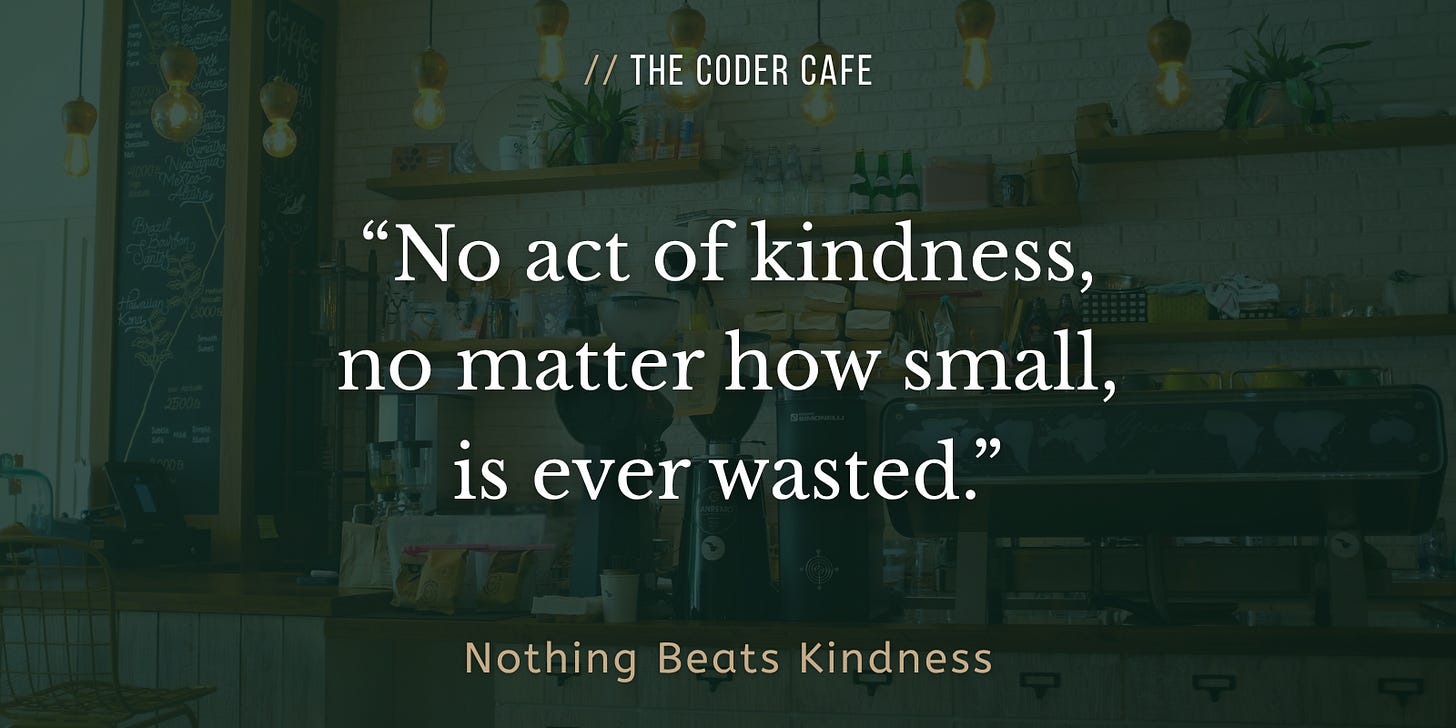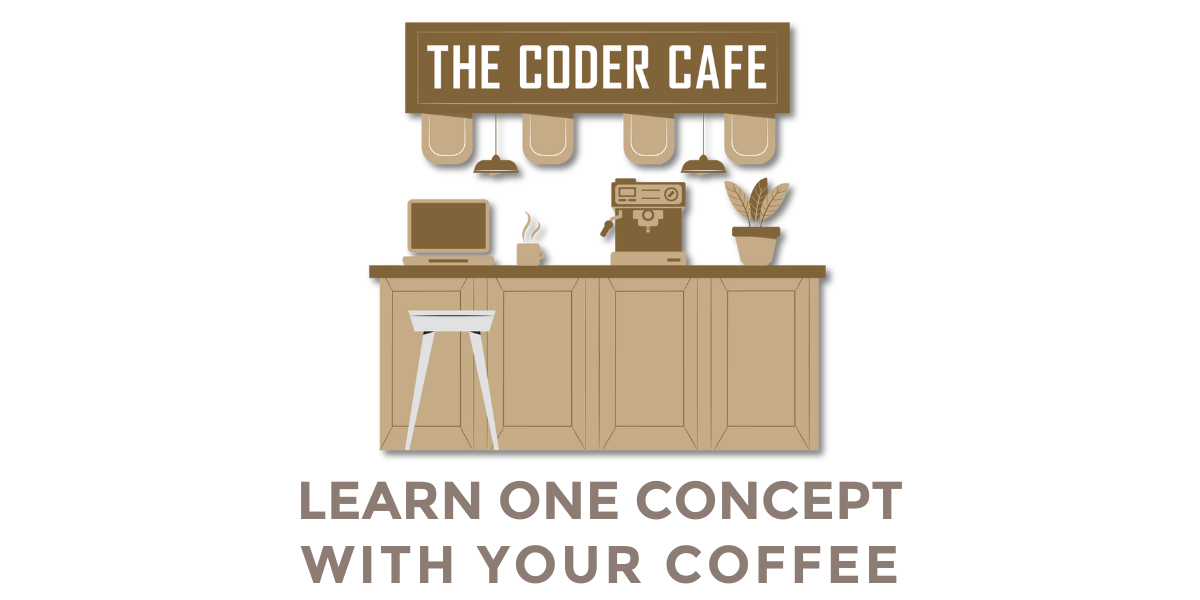☕ Welcome to The Coder Cafe! Today, November 13, is World Kindness Day. For this special occasion, we discuss how kindness matters at work. Get cozy, grab a coffee, and let’s begin!
We’re in 2022. It’s Saturday evening, and I’m about to go to bed. I’m on-call that night. I haven’t been paged, but just to make sure everything is OK, I logged in and checked Slack.
An incident was going on, and a colleague was already on it. I DMed him: “Why didn’t you contact me?”
He replied: “It’s late and I thought you might be sleeping. I was awake, so I looked to see if there’s something I could do.”
My first reaction was: I’m on-call. I’m paid for it. I’ll take care of it. Go to bed.
But here’s the thing: on a Saturday evening, he chose to help because he thought I might be sleeping, even though I was the one on-call, the one paid to handle it.
That was a pure act of kindness. No points. No credit. Just care. And after that? Honestly, I would have done anything for that person.
Why Kindness Wins
At work, we work with people long before we work with code. There’s always a little distance between us: roles and power dynamics, deadlines and pressure, different cultures, communication styles, sometimes different time zones. Kindness is the fastest bridge across that distance.
Kindness is about being generous, considerate, and having concern for others without expecting praise or reward in return. It’s a voluntary act that creates psychological safety among team members. When people feel safe, they surface risks earlier, ask the “naive” questions, and move faster together.
Kind people make work better day in, day out. Kindness boosts trust, speeds decisions, reduces stress, and quietly raises the bar for everyone.
Let’s look at a few places where kindness matters in our daily jobs:
Code review: When we’re assigned a review, we’re not there to rate someone’s code. We’re there to merge the best possible change together. Be respectful and stay factual. Favor questions over pronouncements: “What scenarios does this handle? I’m worried about X; would Y cover Z?” Point out what’s good, suggest concrete fixes, and link to standards or examples. If there’s confusion, offer help.
Meetings: Make space so everyone can be heard. Don’t interrupt. Invite quieter people in: “Ben, anything you would add?” It’s not because someone is more vocal that they’re more right.
Mentoring: People make mistakes. Don’t jump to blame or perform expertise. The goal is to protect in public and correct in private. Give clear, kind feedback, focus on the next step, and share your own past mistakes to lower the temperature.
Random thank you: When you receive help or just enjoy working with someone, say thank you. Recognition matters, and doing it publicly multiplies the effect. For example, at Google, there’s a program called gThanks that lets you thank someone publicly so others can see it too.
Make time to listen: Being kind also means making time to listen. I remember going through a difficult period of my life, and a former manager just took time to talk, without judging. That mattered more than any advice.
Self-compassion: Kindness also applies to yourself. Give yourself the same understanding you would give a teammate. Take breaks, ask for help, forgive your own mistakes, and learn from them.
Being kind is a bridge to people, and even in a professional context, as Aesop wrote, no act of kindness, no matter how small, is ever wasted.
Resources
More From the Beyond the Code Category
Sources
Explore Further
❤️ If you enjoyed this post, please hit the like button.
💬 What’s one act of kindness that changed your workday?




